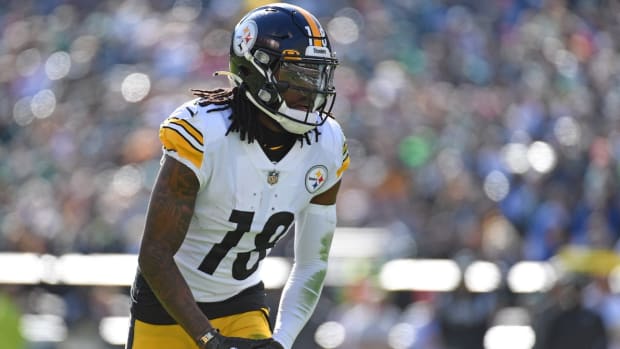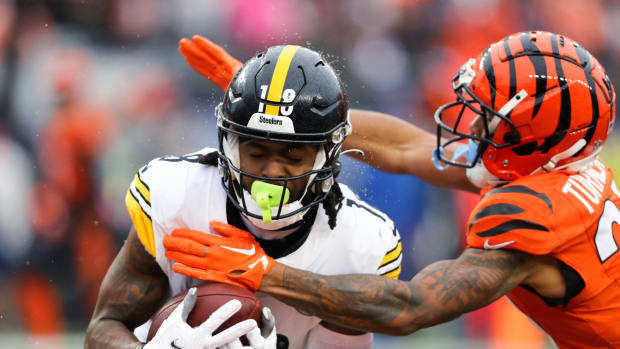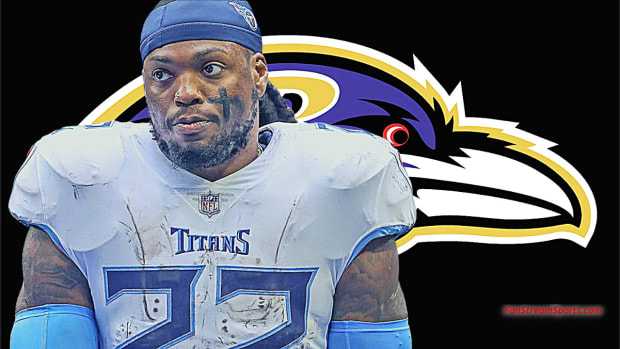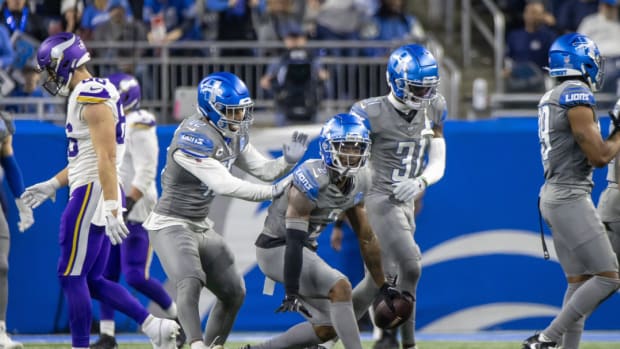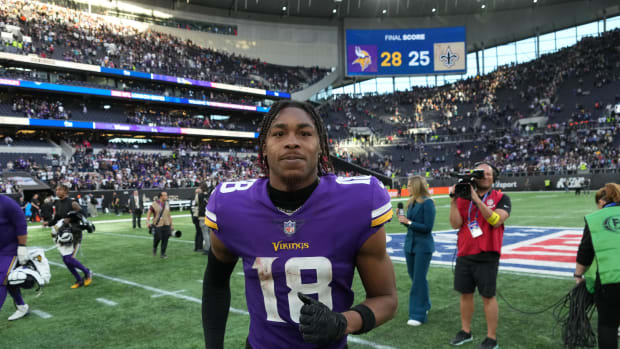Right Now, Deshaun Watson Is Good; Here’s Why He Has a Chance to Be Great
It came in defeat, but on Sunday Deshaun Watson turned in the finest performance of his impressive seven-game NFL career. After a week of distractions for the Texans, and in a hostile road environment against an experienced, star-studded Seahawks defense, Watson became the first player in history to throw for 400 yards, rush for 50 more and toss four touchdowns in a single game.
By now, we’re used to seeing such statistical superlatives from the 12th overall pick of last spring’s draft. Entering Sunday, Watson was the first rookie QB to have three consecutive three-touchdown games. His 19 TDs are the most of any QB in his first seven outings ever. (Kurt Warner held the old mark at 18.) It’s been a great start, indeed, but for Watson’s sake, let’s hope head coach Bill O’Brien and QB coach Sean Ryan aren’t just patting him on the back during this week’s film sessions. The 22-year-old still has a lot to work on.
Watson has had an unusual number of his rookie mistakes go unpunished. He’s made far too many ill-advised throws late in the down when the play becomes unstructured. He has the athletic prowess to be great here, but he hasn’t developed the decision-making discipline.
Another young QB who is like this (still) is Jameis Winston, albeit a little less each day. Winston is as smart as any young QB, but like Watson, he can try to do too much. (His first-half fumble Sunday against Carolina is the latest example.) However, Winston has the arm strength to get away with some of his riskier decisions. Watson does not. Watson is a great touch passer and smooth on-the-move thrower (going to his right or left). He can’t, however, sling fastballs on a rope or through tight windows at the deeper-intermediate levels. The less velocity on your throw, the smaller your margin for error.
Watson also is not a precision accuracy passer; that was the case at Clemson, too. Some of his best highlight plays have been against broken coverages or when he heaves the ball without clear definition. When it works out it looks spectacular on TV, but over the long haul it’s how you pile up turnovers. He has thrown eight picks this season. Three came Sunday at Seattle, and on his only two meaningful picks, veteran defensive backs got the better of him. The first was Earl Thomas, who was a free defender in “2 man” coverage (a coverage Seattle doesn’t play often) and simply read DeAndre Hopkins’s in-breaking route. Thomas jumped it and took it back 78 yards for a score. The second was Richard Sherman, who came off his outside assignment late in the down to snatch a tight end crossing route that Watson was staring down as he rolled out. Two cases of a rookie QB facing savvy veterans.
With Questions About Owner Bob McNair Swirling, Texans Put On Offensive Show Against Seahawks
These mistakes were not new for Watson, but paying for them was. However, this is normal for a rookie. The bright side is, when you remove Watson’s highs and lows and examine him as simply a down-to-down QB, you see an improving player. Watson continues to grow in vital areas that many young mobile QBs never do. Pocket passing, for instance. Watson doesn’t just scan the field from the pocket, he’s also willing to move with the nuance that’s required for creating a clean throwing platform. For the most part, he’s been a little better here each week. And remember, it’s not the most talented O-line that he’s playing behind. Watson is willing to keep his eyes downfield, and he strives to operate within the timing of the play designs.
And, obviously, Watson’s mobility is an asset. He averages five runs for 38 yards per game. He regularly makes passes off of movement, both designed and improvised. In this sense, he’s similar to Dak Prescott, though the Cowboys QB is also a young, unfinished product. A better model for what the Texans hope Watson can be is the quarterback who beat them on Sunday. Russell Wilson and Watson have different body types and ball-handling styles, but their bottom-line strengths are similar: great touch passers and on-the-move weapons with keen out-of-pocket vision. Wilson has a better arm than Watson, but Watson has the chance to become the more disciplined player. It has taken Wilson several years to learn how to play within the structure of Seattle’s offense, and at times we’re reminded that this really isn’t his inherent style of play. Watson has gotten more help from his coaches than Wilson did. While the Seahawks’ designs have sometimes been conducive to Wilson’s loosey-goosey tendencies (including the bad ones), O’Brien has a broader-encompassing passing game that’s built more on spacing and timing.
We’ve always heard about the complexity of O’Brien’s scheme—and it’s true, he asks a lot of his quarterback. But we’ve seen O’Brien adjust to ease Watson’s transition. The fourth-year head coach has installed more moving pocket concepts. He’s made use of the read-option. And, something O’Brien never gets credit for, he stays committed to run-pass balance even though his running game, while schematically diverse, is nothing special. Run-pass balance is not mandatory for making your play-action work, but it can help make executing your play-action easier. With a rookie QB, you take all the ease you can get.
Examined in a micro sense, Watson right now is not as good as his numbers suggest. But from a macro perspective, his long-term outlook is better than similar players who have come before him. Guys like Watson always look different after teams have had a full year or two to study them. (You may know a certain polarizing, currently unsigned QB who is the poster child for this.) You counter this by putting that QB in a sharp, well-defined scheme, where he has a chance to win through play designs and not just his own gyrations. Watson is off to a pretty good—though far from great—start. In Houston’s system, he has an excellent opportunity to grow.
• Question or comment? Email us at talkback@themmqb.com.

































